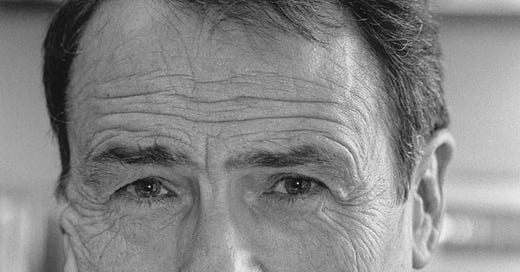How Bourdieu Can Help Us Understand Talent Systems
The French sociologist Pierre Bourdieu never studied sport, but his ideas may explain more about talent development than most coach education programmes...
Most talent development systems still focus on the athlete: their traits, performance, and potential. But what if the real story of talent isn’t just about ability or potential? What if it’s also about social background, power relations, and cultural fit?
That’s where Pierre Bourdieu comes in.
Bourdieu’s theory of practice was developed to understand inequality in education and society, but it turns out to be incredibly useful for unpicking the hidden logic of sport. In this post, I’ll explain three of his core concepts: habitus, capital, and field, and show how they help us understand who gets identified as talented, who thrives in the system, and who gets left behind!
Habitus: Why Some Kids Fit the System (and Others Don’t)
Habitus refers to the ingrained habits, dispositions, and ways of being that we acquire through upbringing and experience. It’s not conscious. It’s not fixed. But it shapes how we move, speak, think, and interact.
In talent systems, habitus matters more than we think.
A child from a middle-class family may speak in ways that coaches find articulate and “coachable.” A working-class kid might display behaviours that are interpreted as aggressive, emotional, or resistant to authority. But often these aren’t personality traits, they’re expressions of habitus formed in different social worlds.
Those whose habitus aligns with institutional (i.e. club, school, federation, etc.) norms tend to be rewarded. Meaning early identification or opportunities aren’t about ability, but about cultural match.
That means some kids are seen as “talented” partly because they already behave in ways that feel comfortable to coaches. Others, especially those from marginalised or disadvantaged backgrounds, face an uphill battle, even when they demonstrate the same, or greater, potential.
Capital: Talent Isn’t Just What You Can Do, It’s What You Bring
Bourdieu outlined different forms of capital, not just economic, but also:
Social (who you know) capital.
Cultural (what you know and how you express it) capital.
Symbolic (the recognition or prestige you carry) capital.
In talent systems, these forms of capital are everywhere! A parent who can drive their child to every training session is offering economic capital; a family that knows how to navigate elite sport environments is offering cultural and social capital; a player with a reputation or a viral highlight reel on a social media platform might already carry symbolic capital before they even step on the pitch/court/ring/rink.
All of this affects access to opportunity.
This isn’t about conspiracies or deliberate exclusion. It’s about structural inequality that’s fundamental to how we define “talent” in the first place. Those with more capital might be seen as more prepared, more deserving, or more coachable; whether that’s true or not!
Sport as a Battleground of Power and Position
The field, in Bourdieu’s terms, is the structured social space in which actors (i.e., people, individuals) compete for capital. Each field has its own rules, hierarchies, and forms of legitimacy.
Think of the football (soccer) academy system as a field: There are unwritten rules about what counts as good behaviour (e.g., shaking hands with anyone within the academy environment is a common one); what kind of physical profiles are preferred; what positions are most valued, etc. Scouts, coaches, parents, and athletes all operate within this field, trying to gain advantage, recognition, or stability.
The problem? Fields are not neutral. They reflect and reproduce broader social hierarchies.
So when a coach selects a player, it’s not just a decision about performance, it’s also a reproduction of field-specific values and biases. Often, the most talented players are those who already know how to navigate the field. And that knowledge comes from prior exposure, opportunity, and capital, not ability alone.
Why This Matters for Talent Development
Using Bourdieu’s theory doesn’t mean giving up on talent identification. It means getting smarter and more critical about how we approach it.
We need to recognise the hidden curriculum of talent systems: the unspoken expectations about behaviour, speech, and background.
We need to create environments where diverse forms of habitus and capital are welcomed, not penalised.
We need to challenge the assumptions and blind spots in our own systems, especially when it comes to race, class, and cultural fit.
Too often, talent identification becomes talent reproduction: picking the same types of kids from the same kinds of backgrounds and calling it “meritocracy.” Bourdieu can help us see why, and how, we might do better.




